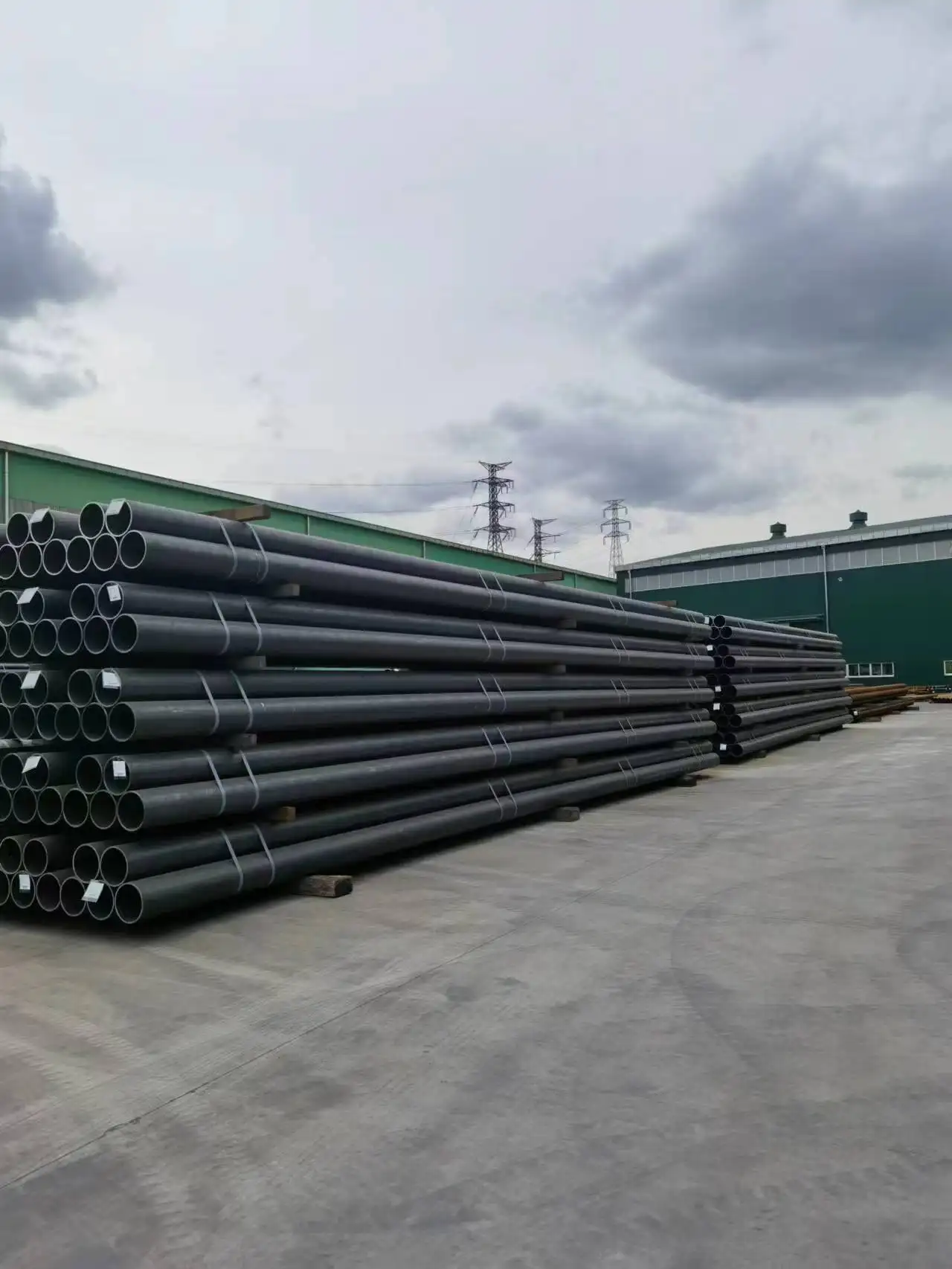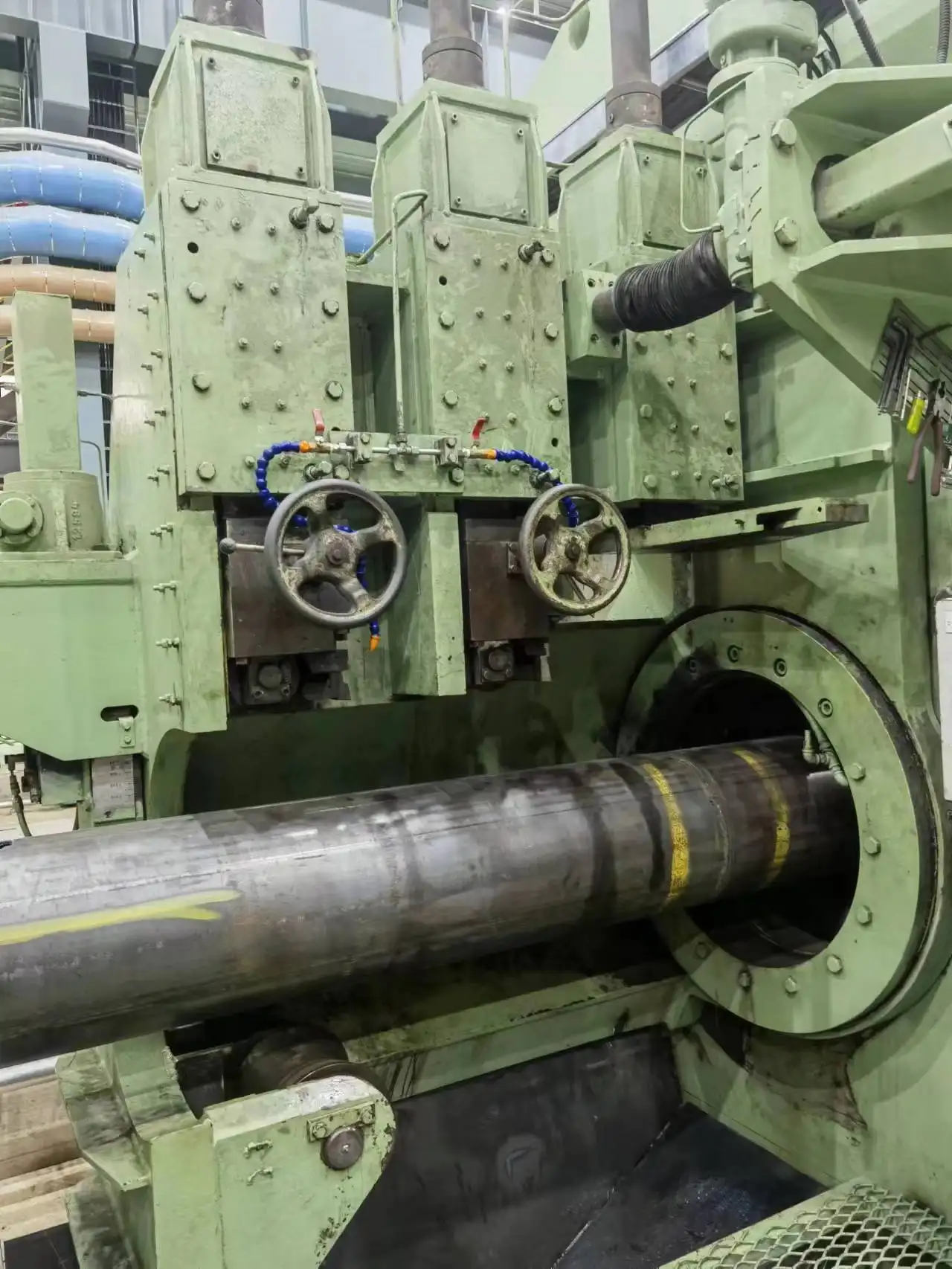Optimizing Your Manufacturing Capabilities with Modern Steel Pipe Production Equipment
The manufacturing industry continues to evolve rapidly, and selecting the right steel pipe making machine has become crucial for factory success. Modern production facilities require efficient, reliable, and advanced machinery to maintain competitiveness in today's demanding market. This comprehensive guide will walk you through the essential factors to consider when investing in steel pipe manufacturing equipment, helping you make an informed decision that aligns with your production goals and budget constraints.
Key Considerations for Steel Pipe Making Machine Selection
Technical Specifications and Production Capacity
When evaluating a steel pipe making machine, the first aspect to examine is its technical capabilities. Modern machines offer various specifications that can significantly impact your production output. Consider the diameter range the machine can handle, which typically varies from 20mm to 630mm for standard models. The wall thickness capability is another crucial factor, usually ranging from 0.5mm to 20mm depending on the machine model.
Production speed and capacity should align with your factory's requirements. Advanced steel pipe making machines can achieve production speeds of up to 40 meters per minute, though this varies based on pipe specifications. Calculate your required daily output and factor in potential growth to ensure the machine can meet both current and future demands.
Automation and Control Systems
Modern steel pipe making machines incorporate sophisticated automation features that enhance production efficiency and quality control. Look for machines equipped with PLC (Programmable Logic Controller) systems that offer precise control over the manufacturing process. These systems should provide real-time monitoring capabilities and allow for quick adjustments to production parameters.
Advanced control systems also contribute to reduced material waste and improved product consistency. Consider machines that offer automatic width adjustment, automatic welding control, and integrated quality inspection systems. These features not only improve production efficiency but also reduce the need for manual intervention and potential human error.
Material Processing and Quality Assurance
Raw Material Compatibility
The steel pipe making machine you select must be compatible with your intended raw materials. Consider whether you'll be working with carbon steel, stainless steel, or other alloys. Different materials require specific processing parameters and may need specialized features in the machine design. The machine should handle your chosen material grade while maintaining consistent quality throughout the production run.
Material thickness ranges and coil width capabilities are also crucial factors. Ensure the machine can accommodate your standard material specifications while providing flexibility for different product requirements. Some advanced machines offer quick-change systems for different material types, which can significantly reduce downtime during product changeovers.
Quality Control Features
Superior quality control mechanisms are essential in modern steel pipe making machines. Look for equipment that incorporates inline inspection systems, such as ultrasonic testing or eddy current testing capabilities. These features help detect defects early in the production process, reducing waste and ensuring consistent product quality.
Advanced machines often include automated dimension control systems that continuously monitor pipe diameter, wall thickness, and straightness. Consider machines with integrated marking systems for product traceability and quality documentation features that help maintain compliance with industry standards.

Operational Efficiency and Cost Considerations
Energy Efficiency and Consumption
Energy costs represent a significant portion of operational expenses in pipe manufacturing. Modern steel pipe making machines should incorporate energy-efficient features such as variable frequency drives, optimized heating systems, and smart power management. Compare the power consumption specifications of different machines and calculate the long-term operating costs to make an informed decision.
Look for machines with energy recovery systems and those that minimize idle power consumption. Some advanced models offer energy monitoring capabilities that help identify opportunities for optimization and reduce overall power consumption during production.
Maintenance Requirements and Accessibility
Regular maintenance is crucial for the longevity and reliability of your steel pipe making machine. Consider machines designed with easily accessible components and clear maintenance points. Quick-change systems for wear parts and tool-less adjustment features can significantly reduce maintenance downtime.
Evaluate the availability and cost of spare parts, as well as the manufacturer's support network. Some manufacturers offer predictive maintenance systems that help schedule interventions before problems occur, maximizing machine uptime and productivity.
Future-Proofing Your Investment
Upgrade Potential and Flexibility
The steel pipe manufacturing industry continues to evolve with new technologies and market demands. Choose a steel pipe making machine that offers upgrade potential and modularity. This might include the ability to add new features, integrate with Industry 4.0 systems, or accommodate different product specifications in the future.
Consider machines that support digital integration and data collection capabilities. These features can provide valuable insights into production performance and help optimize operations over time. Look for manufacturers who demonstrate a commitment to ongoing product development and technology advancement.
Training and Support Services
Comprehensive training and support services are essential for maximizing the value of your investment. Evaluate the manufacturer's training programs for operators and maintenance staff. Consider the availability of technical support, both remote and on-site, and the response time for critical issues.
Documentation quality, including operation manuals and maintenance guides, should be thorough and easily accessible. Some manufacturers offer virtual training platforms and augmented reality support tools, which can be valuable for ongoing operator education and troubleshooting.
Frequently Asked Questions
What is the typical ROI period for a new steel pipe making machine?
The return on investment period typically ranges from 2 to 5 years, depending on factors such as production volume, market conditions, and operational efficiency. High-efficiency machines with advanced features may have a shorter ROI period due to reduced waste, lower operating costs, and higher product quality.
How important is the manufacturer's reputation when selecting a steel pipe making machine?
Manufacturer reputation is crucial as it often indicates reliability, support quality, and long-term viability. Look for manufacturers with proven track records, strong references, and established support networks in your region. Consider their history of innovation and commitment to customer service.
What are the key maintenance requirements for steel pipe making machines?
Regular maintenance typically includes daily inspections of critical components, weekly lubrication schedules, monthly calibration checks, and annual comprehensive servicing. Modern machines often feature predictive maintenance systems that help optimize maintenance schedules and reduce unexpected downtime.

